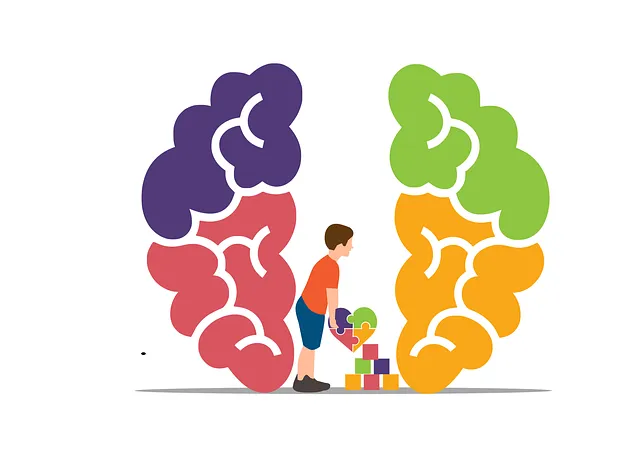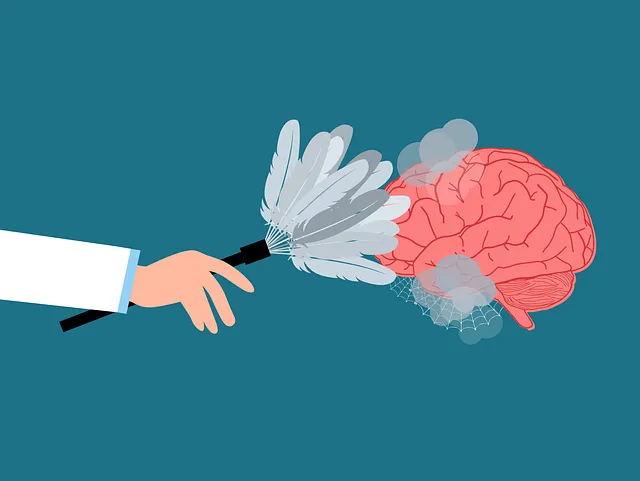The Lakewood Kaiser Permanente behavioral health providers prioritize understanding community needs through outreach, education, and partnerships. They tailor programs like group therapy and mindfulness workshops for specific demographics, focusing on youth stress management and older adult isolation. This strategic approach, using evaluation methods and Emotional Intelligence, strengthens relationships with local organizations to enhance mental health services and well-being in the Lakewood community over the long term.
Community outreach programs play a vital role in expanding access to mental health services, particularly for underserved populations. This article explores the successful implementation strategies employed by Lakewood Kaiser Permanente behavioral health providers. We delve into understanding community needs, identifying specific target audiences, and designing engaging outreach programs that educate and connect with at-risk groups. Through effective implementation and evaluation, this initiative ensures sustainability and positive impact on the well-being of the local community.
- Understanding Community Needs: Identifying Target Audiences for Lakewood Kaiser Permanente Behavioral Health Programs
- Designing Effective Outreach Strategies: Engaging and Educating Communities
- Implementation and Evaluation: Measuring Impact and Ensuring Sustainability of Community Outreach by Lakewood Kaiser Permanente Behavioral Health Providers
Understanding Community Needs: Identifying Target Audiences for Lakewood Kaiser Permanente Behavioral Health Programs

Understanding the unique needs of the Lakewood community is a crucial first step in implementing effective behavioral health programs by Kaiser Permanente’s dedicated providers. By delving into the specific challenges and aspirations of different demographic groups, healthcare professionals can tailor their services accordingly. For instance, youth may require education on coping skills development to manage stress and anxiety, while older adults might benefit from empathy-building strategies to combat feelings of isolation.
Identifying target audiences allows for the creation of programs that address these specific needs. These could range from group therapy sessions focused on emotional healing processes for individuals experiencing trauma, to community workshops promoting mental wellness through mindfulness practices. By understanding the landscape of local psychological well-being, Lakewood Kaiser Permanente behavioral health providers can revolutionize access to care and make a lasting impact on the lives they touch.
Designing Effective Outreach Strategies: Engaging and Educating Communities

Effective community outreach strategies are designed to engage and educate communities, fostering a deeper understanding of their needs and how healthcare services can address them. For Lakewood Kaiser Permanente behavioral health providers, this involves tailoring programs to specific community dynamics, ensuring relevance and accessibility. By incorporating Burnout Prevention Strategies for Healthcare Providers, these initiatives not only enhance service delivery but also build Empathy Building Strategies, strengthening the bond between healthcare professionals and the communities they serve. Through interactive workshops, educational sessions, and collaborative partnerships, community outreach programs can empower residents with knowledge about mental health, substance abuse prevention, and coping mechanisms, ultimately improving overall well-being.
Implementation and Evaluation: Measuring Impact and Ensuring Sustainability of Community Outreach by Lakewood Kaiser Permanente Behavioral Health Providers

Implementing community outreach programs requires a strategic approach to ensure their long-term sustainability and impact. Lakewood Kaiser Permanente behavioral health providers have been at the forefront of this initiative, focusing on measuring the success of their outreach efforts. They employ various methods to evaluate the programs, such as tracking participation rates, conducting pre and post-program surveys, and gathering feedback from both service recipients and providers. This comprehensive evaluation ensures that the outreach initiatives align with the community’s needs and identify areas for improvement.
Sustainability is a key aspect of successful community outreach. The Lakewood Kaiser Permanente team recognizes that building strong relationships within the community takes time and consistent effort. They foster partnerships with local organizations, schools, and faith-based groups to create a network of support. By integrating Emotional Intelligence principles in their interactions, they build trust and strengthen these connections. Additionally, Mental Health Policy Analysis and Advocacy plays a crucial role in understanding community needs and allocating resources effectively, ensuring that Trauma Support Services are accessible and tailored to the local population’s unique challenges.
Community outreach programs, as implemented by Lakewood Kaiser Permanente behavioral health providers, are a powerful tool for addressing diverse community needs. By understanding specific target audiences and designing engaging strategies, these initiatives effectively educate and connect with individuals. Through rigorous implementation and evaluation, the sustainability of these programs is ensured, fostering positive behavioral health outcomes within the community. This approach not only enhances access to care but also promotes long-term well-being for all.






